Covid school safety: What measures will be in place as youngest return?
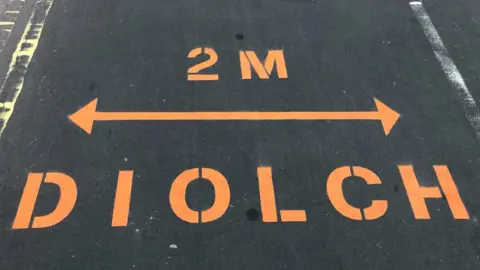 Getty Images
Getty ImagesTeachers are being advised to wear face masks in some circumstances as schools prepare to welcome back children aged three to seven.
On 22 February, the foundation phase will join children classed as vulnerable and those of critical or key workers who have have been able to remain in school during lockdown.
While some schools in areas with higher rates of Covid-19 infection will delay reopening, it will mean the "nightmare" of juggling working from home and home-schooling will end for many.
But some parents might be anxious about what sort of learning environment awaits their children.
The Welsh Government has published new safety guidance for schools ahead of the return.
From school cleaning to uniforms, transport and lunches - here is everything you need to know about children's' return to school.
Can I choose to keep my child at home?
Absence will not be penalised during this period, the guidance says.
It adds is a parent or carer wishes for their child to be absent "we expect schools to authorise the absence during this time".
It says schools should continue to record attendance in the register and follow up on absences where learners are expected in school.
Will staff have to wear facemasks?
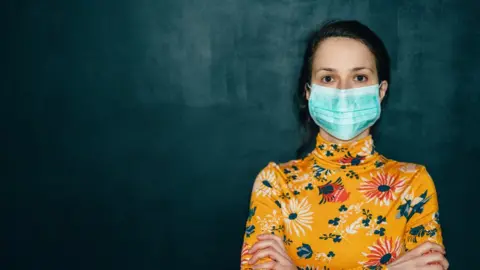 Getty Images
Getty ImagesYes. The Welsh Government says face masks should be worn by staff if social distancing cannot be maintained - it has acknowledged young children "will not be able to maintain social distancing".
It says both staff and secondary school learners should wear face masks anywhere on the school estate, including in the classroom.
The exception is at mealtimes and when they are outside, unless the school risk assessment indicates that additional measures are needed.
Schools should ensure adequate waste bins on premises for those who choose to use single-use face coverings.
Visitors to the school should also use a face covering, including parents and carers when dropping off and picking up.
People need to wash their hands both before and after putting on and removing face coverings.
Will children be expected to social distance?
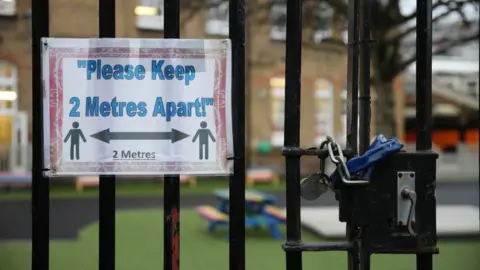 Getty Images
Getty ImagesNo. The Welsh Government says it recognises younger children "will not be able to maintain social distancing", adding it is "acceptable for them not to distance within their group".
Staff need to maintain social distance from other staff and also from learners "as much as possible, recognising this may not be possible with younger learners".
The guidance says if possible, staff responsible for younger learners should remain with set groups rather than interchange between different groups.
What distancing measures have been advised?
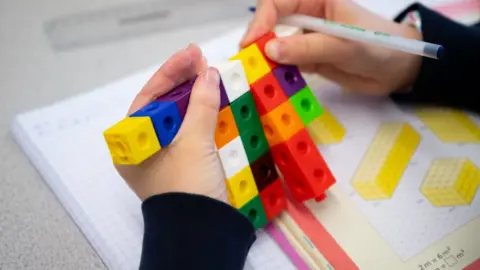 Getty Images
Getty ImagesWhere children undertake desk-based learning, classrooms should have forward-facing desks, one metre apart, the guidance says.
The guidance recognises "this may not be possible or appropriate in all schools and settings and particularly for younger learners".
Schools have been told to make the most of the space available, including outdoor space
What advice have schools been given on cleaning?
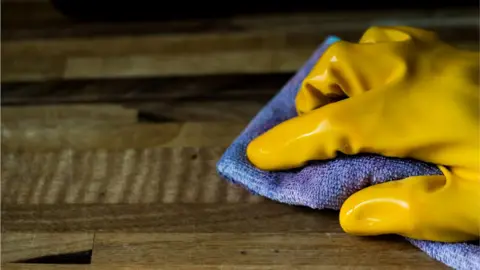 Getty Images
Getty ImagesSchools have been told to ensure enhanced cleaning takes place, including cleaning frequently touched surfaces often, using standard products such as detergents and disinfectants.
Where possible, schools should provide separate toilets for different contact groups.
Where this is not possible, hand sanitiser should be used before entering the toilet.
What about class sizes?
The guidance advises grouping learners together in "as small a group as possible".
"For example, for those learners in the foundation phase this is likely to be the size of the class," it adds.
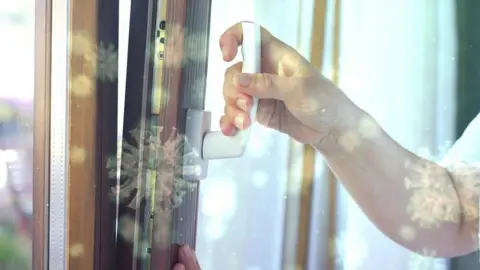
It says mixing between separate contact groups, including during arrival at school, break/lunch times and leaving school, should be avoided.
What is the advice on ventilation?
Where possible, schools need to ensure appropriate ventilation, the guidance says.
Mechanical ventilation systems should be adjusted to increase the ventilation rate wherever possible.
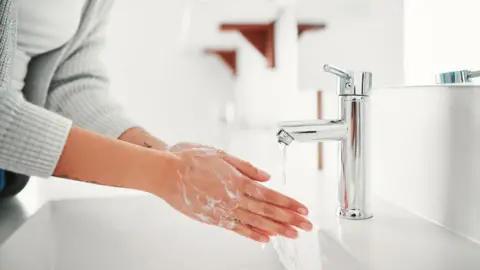 Getty Images
Getty ImagesWindows should be opened - in cooler weather windows should be opened "just enough to provide constant background ventilation" and opened more fully during breaks.
It says opening internal doors can also assist with increasing air circulation.
What is the advice on hand hygiene?
The guidance says hands should be cleaned thoroughly more often than usual with soap and water for at least 20 seconds, or use a hand sanitiser if soap and water are unavailable.
It says small children and those with complex needs should continue to be helped to clean their hands properly.
Automated soap dispensers should be used where possible and hands should preferably be dried using paper towels.
Hand dryers should be avoided where possible.
Will my child have to wear school uniform?
The guidance says some schools "may feel it is appropriate" to relax their uniform policy during this period.
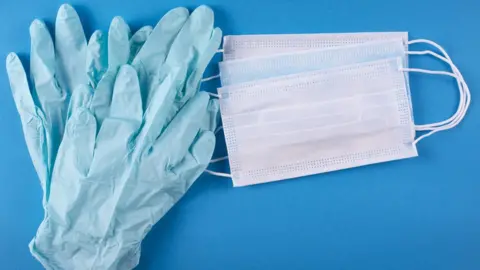 Getty Images
Getty ImagesIt points out that school uniform and general clothing shops are currently closed under the Wales-wide alert level four lockdown.
"This is a decision for school leaders," it adds.
What about personal protective equipment (PPE)?
Gloves, aprons and a fluid-resistant surgical mask should be worn if a child becomes unwell with Covid symptoms and needs direct personal care, the guidance says.
Eye protection should also be worn if a risk assessment determines there is a risk of splashing to the eyes such as from coughing, spitting, or vomiting.
Gloves and aprons should also be used when cleaning the areas where a person suspected of having the virus has been.
Gloves and aprons should continue to be used when providing personal care to a child or young person, it says. This can include personal, hands-on care such as washing, toileting, or first aid and certain clinical procedures such as assisted feeding.
What about lunch at school?
This depends on whether catering facilities are still available within the school in question.
If catering facilities are open, those eligible for free school meals will be provided with lunch on each day they attend. Other learners will still be expected to pay for their meals.
If the school's catering facilities are closed, those eligible for free school meals will be provided with vouchers, food parcels or payments. All learners can be required to bring in a packed lunch.
Will there be school transport?
Local authorities remain under a statutory duty to provide free home to school transport for all eligible learners of compulsory school age who live over 2 miles from their primary, or three miles from their secondary school.
Risk assessments must be completed and signed off by the appropriate local authority officer.
There is no requirement to wear a face covering on dedicated home-to-school transport.
There is no requirement to maintain contact groups on school transport providing a consistent group of learners travel on the same bus each day they attend.
